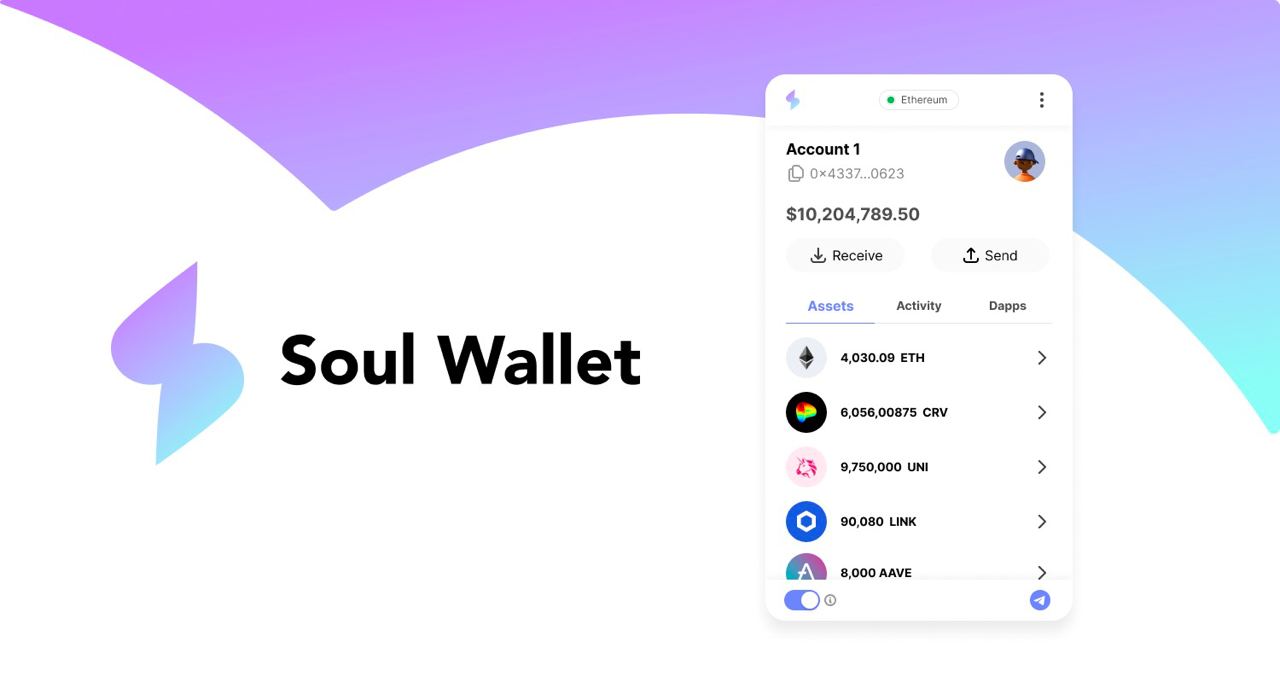If you own an unsecured wallet like MetaMask, you know the problem with keeping your 16-word passphrase safe. That's the responsibility that comes with full control of your digital assets.
Third-party wallets, such as those hosted by Exchange, store private keys on behalf of users and provide a better user experience. The risk lies in the lack of transparency in how user funds are handled, which could lead to incidents such as the FTX collapse.
Some believe that a new technical change in the Ethereum ecosystem will solve the problem between resource control and user experience. At the heart of the movement is the ERC-4337 standard launched by the Ethereum Foundation, the non-profit research arm of Ethereum, the world's second largest cryptocurrency with an active developer community.
Jiajun Zheng, product manager at TikTok parent company ByteDance and Chinese on-demand service giant Meituan, was an early adopter of the new standard. His startup Soul Wallet has raised $3 million in seed funding to offer a self-sustaining online Ethereum wallet built on ERC-4337.
According to the new technology update, comparing cryptocurrency wallets to existing wallets is “like comparing a Nokia to an iPhone,” Zeng said in an interview with TechCrunch.
"After the explosion of FTX, people are refocusing on how to get a better user experience on self-hosted wallets," Zhang said.
The new standard sparked a frenzy among blockchain application developers at EthDenver, a major Ethereum developer conference that drew more than 30,000 attendees to the Colorado capital in early March.
With ERC-4337, Ethereum plans to bring smart contract functionality to wallets (the so-called "account pool", but let's not get into the main issue). In short, developers can program smart contracts or lines of code into a wallet that enforces predefined agreements.

Image source: Soul Bag
Being smart means avoiding some of the old problems of cryptocurrency wallets: b. Reliance on genealogy. Instead, smart wallets that support contracts allow users to recover their accounts through social recovery, which is a similar account recovery process for those using WeChat, for example.
Developers can also bundle other custom features, such as b. The ability for users to pay their gas bills using stablecoins instead of limiting payments to Ethereum.
MetaMask, the popular self-sustaining Ethereum wallet, uses an ancient cryptosystem called EOA, or Owned Offshore Account, where if a user loses their private keys, their funds are lost forever. Early Argentum has built some smart features into its wallets, Cheng said, but the features are still limited.
The challenge when introducing a new level of technology is scalability. MetaMask has a stable user base because it is compatible with many popular decentralized applications. The question is how SolKiss and other similar startups can compete to build a meaningful pool of partners.
Zeng, an active member of the Ethereum community, said that Ethereum sees smart contract wallets as the future of Ethereum, so dApp developers would be excited to make the difference.
"Instead of trying to steal users like MetaMask, we're targeting the next billion crypto users," Zeng said.
He continued, "In developing countries like South America and Africa, people use cryptocurrencies to hedge against currency inflation, so it depends on how widespread adoption of cryptocurrencies is in those regions."
"For developed countries, adoption depends on the evolution of dApps and NFTs."
According to Zheng, Soul Pocket is currently undergoing internal testing and is expected to launch in the third or fourth quarter after a series of rigorous tests. The team consists of ten employees in the United States, Japan, Thailand and China.
Investors participating in the latest "party" round include Struck Crypto, Game7DAO, NGC Ventures, Dispersion Capital, Alchemy, Ankr and Signum Capital. The funding was backed by several notable angel investors such as David Hoffman and Ryan Shawn Adams of Bankless. Christophe Gazso, co-author of ERC-4337; Mark Zeller of the Avi Chan Initiative; Scott Moore of Jetcoin; Terence Tsao of Arbitrum; and Tim Bico of the Ethereum Foundation.
Updated March 16, 2023 with the list of investors in the funding round.

